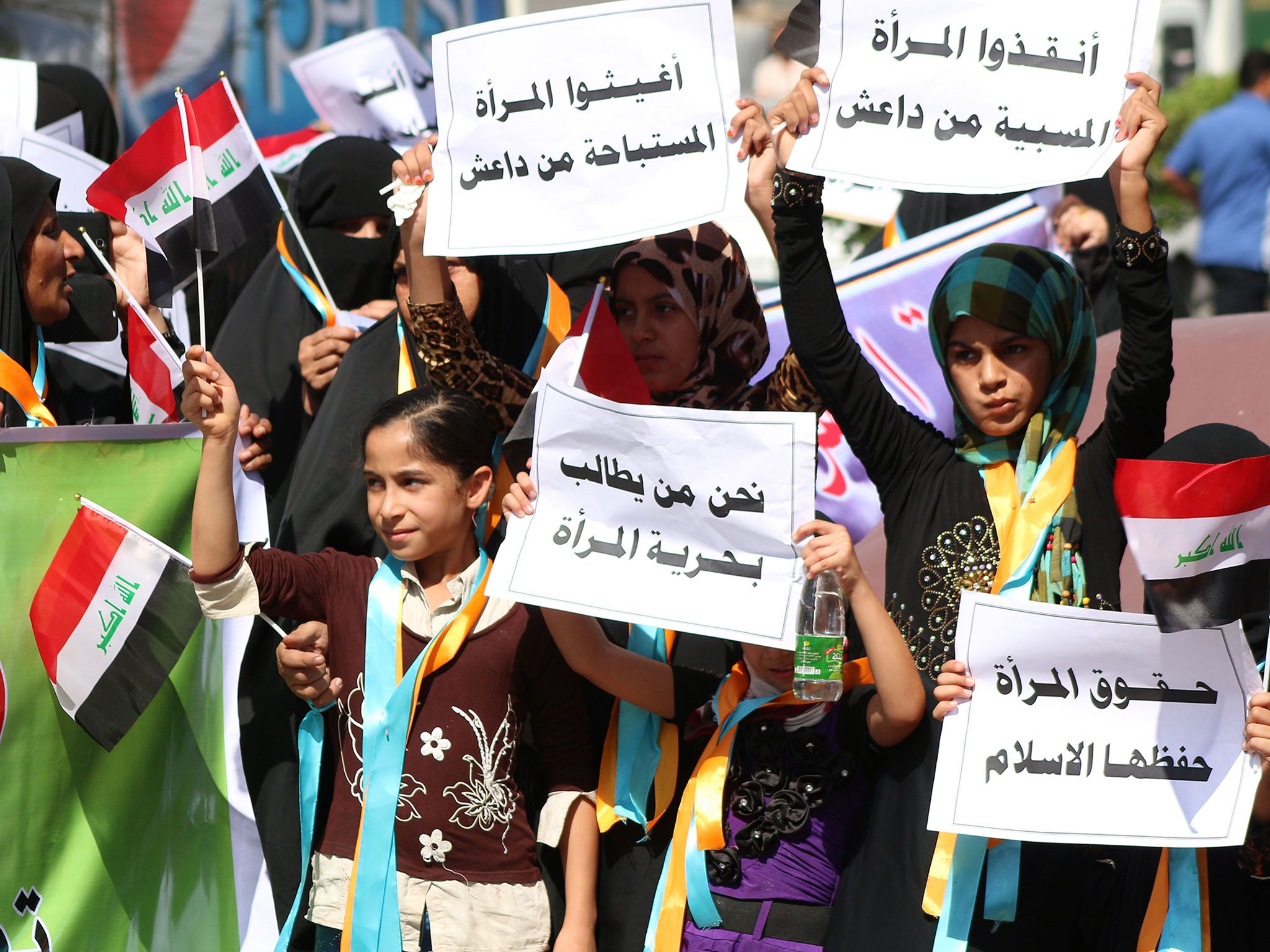Isis: Muslim-majority countries across the world overwhelmingly detest terrorist group
Research showed that the group was almost universally hated by Muslims and non-Muslims alike

Your support helps us to tell the story
From reproductive rights to climate change to Big Tech, The Independent is on the ground when the story is developing. Whether it's investigating the financials of Elon Musk's pro-Trump PAC or producing our latest documentary, 'The A Word', which shines a light on the American women fighting for reproductive rights, we know how important it is to parse out the facts from the messaging.
At such a critical moment in US history, we need reporters on the ground. Your donation allows us to keep sending journalists to speak to both sides of the story.
The Independent is trusted by Americans across the entire political spectrum. And unlike many other quality news outlets, we choose not to lock Americans out of our reporting and analysis with paywalls. We believe quality journalism should be available to everyone, paid for by those who can afford it.
Your support makes all the difference.Isis is almost universally detested across the Middle East, Asia and Africa, even in Muslim-majority countries, a new poll has shown.
Despite rhetoric about supposed “sympathy” for the terrorist group among Muslims in the UK and around the world, research by the Pew Research Centre indicated almost non-existent support in 11 surveyed countries and territories.
In Lebanon, where Isis’ recent bombing in Beirut killed 43 people, 99 per cent of respondents said they had a “very unfavourable” opinion of the group, while 94 per cent of Israelis and 89 per cent of Jordanians felt the same.
In the Palestinian territories, 84 per cent of people had a negative view of Isis, both in the Gaza Strip (92 per cent) and the West Bank (79 per cent).
Chris Doyle, director of the Council for Arab-British Understanding (Caabu), told The Independent that the results were no surprise.
“I think it emphasises that Isis are seen as a threat to communities across the Arab world – Muslims have been their primary victims after all, as was the case with al-Qaeda,” he said.
“The brutal nature of their rule, the way they have treated women, all the beheadings, have not endeared them to people.
“(Respondents) also know that by their actions, Isis are trying to turn the non-Muslim world against them.”
Mr Doyle said that while all the surveyed areas had experience of jihadist groups, Lebanon was particularly conscious of the carnage next door in Syria, which has driven hundreds of thousands of refugees across its borders.
In no country surveyed did more than 15 per cent of the population declare support for Isis, but in Pakistan views appeared more mixed.
The majority of respondents – 62 per cent – said they did not know how they felt, while almost a third held negative opinions and around nine per cent thought positively of the group.
Mr Doyle said the high proportion of “don’t knows” could be a sign of reluctance to answer the question.
“Isis don’t have as much of presence there so I would like to see further analysis,” he added.
Opinions differed across religious groups in some areas including Nigeria, where Boko Haram declared allegiance to Isis earlier this year while attempting to establish its own “caliphate” with a bloody insurgency.
Around three quarters of Nigerian Christians had an unfavourable view of Isis, as did 61 per cent of Nigerian Muslims, although a fifth of the same group supported the so-called Islamic State.
The Pew Research Centre took the figures from its Global Attitudes Survey conducted in spring this year, before Isis’ latest round of atrocities targeting France, Russia, Lebanon, Egypt, Tunisia, Iraq and Syria.
Its latest findings came after The Sun was criticised for claiming that one in five British Muslims “have sympathy” for extremists going to fight with Isis in Syria.
One in five respondents to the poll did say they had “some” or “a lot” of sympathy with people going to Syria but did not specify who they would be fighting for, following high-profile coverage of volunteers going to combat Isis with the Kurds and other forces.
It was also pointed out that the word “sympathy” does not necessarily indicate approval.
Subscribe to Independent Premium to bookmark this article
Want to bookmark your favourite articles and stories to read or reference later? Start your Independent Premium subscription today.
Join our commenting forum
Join thought-provoking conversations, follow other Independent readers and see their replies
Comments